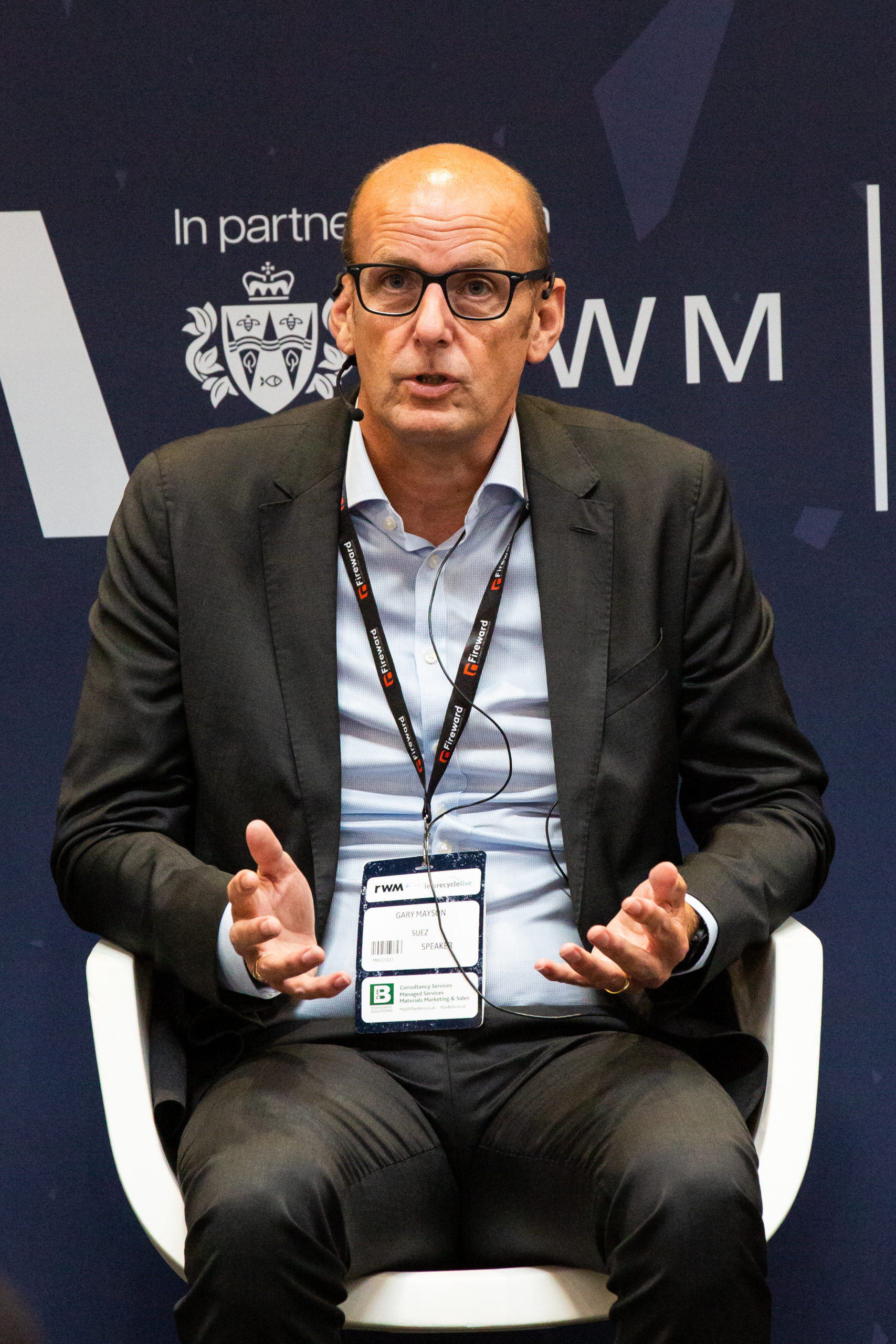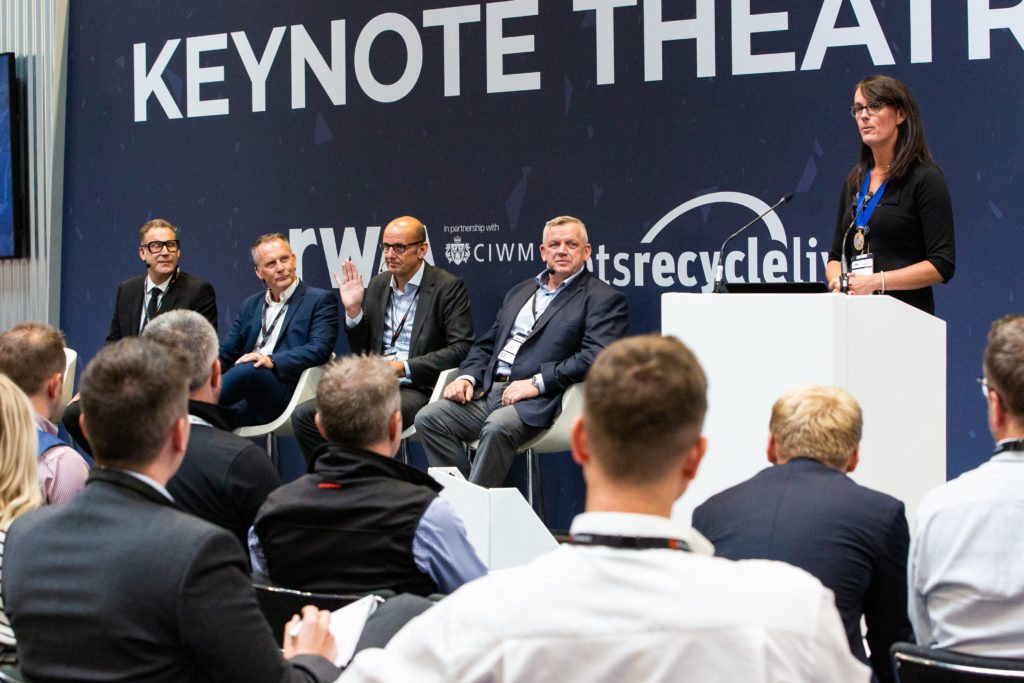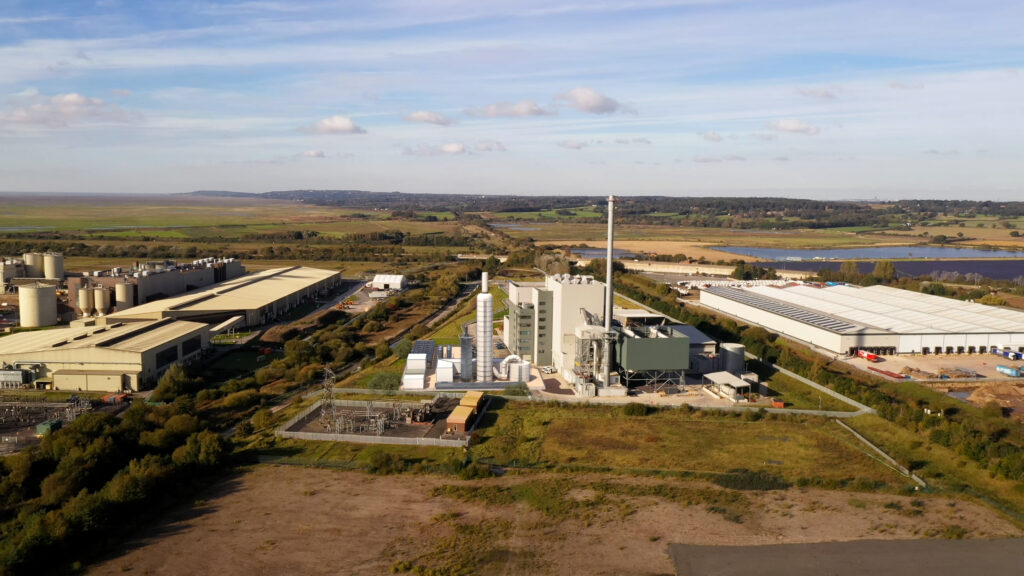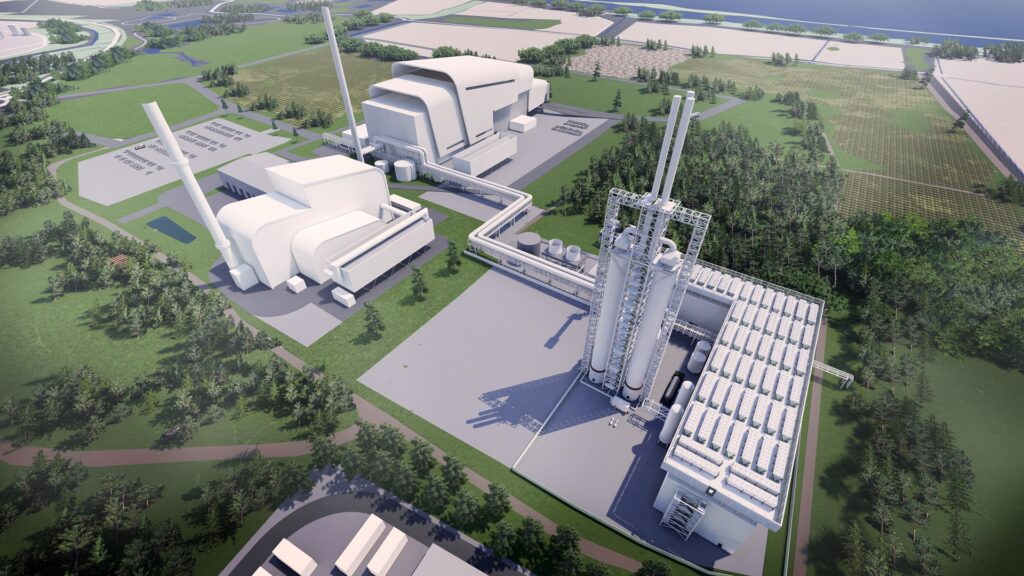Chaired by Dr Anna Willets, president of the Chartered Institution of Wastes Management, the panel discussed the energy crisis and whether more waste should be used to generate electricity.
The speakers on the panel were: Neil Grundon, deputy chair of Grundon; Gerry Marshall, CEO of Recycling Lives; Mike Maudsley, CEO of Enfinium; and Gary Mayson, chief operating officer of Suez UK.
Mr Grundon said he did not believe high recycling rates and energy security were “mutually exclusive” and expressed frustration at the “green movement’s” views on energy from waste (EfW). In partnership with Viridor, Grundon operates the Lakeside EfW facility near Slough, which processes around 450,000 tonnes of residual waste a year, generating 37 megawatts of power.
He drew a distinction between waste which could be recycled, such as glass and aluminium, and that which could not.
“Where I get very vexed is when there seems to be a total denial amongst the green movement that energy from waste in the form of burning shouldn’t be part of our a) energy mix and b) our waste management,” he said. “It certainly makes a lot of sense to me to make as much energy from waste that we can’t recycle as possible.”
‘Non-recyclable’ waste
The panel echoed many of Mr Grundon’s thoughts about how EfW was a solution for non-recyclable waste. Mr Marshall described waste as a “commodity.” He said: “We can extract so many good materials from that commodity and what’s left can go into the energy system.”
We can extract so many good materials from that commodity and what’s left can go into the energy system
- Gerry Marshall, CEO of Recycling Lives
Mr Marshall said “innovation” had a “huge part to play” in how people looked at waste. Recycling Lives is looking to pyrolysis as one innovation which could prove beneficial to the industry, he said.
Enfinium operates five EfW facilities across the UK, including three operational plants and several more under construction. Mr Maudsley said the sector needed to convince the government that EfW was a “phenomenal industry”. “We need to show we can help go to net zero and how we can help the energy crisis as well. We need to put ourselves above the parapet.”
Recycling
Elsewhere in the discussion and attempting to show the ways in which recycling could also keep the costs of energy down for manufacturers, Mr Grundon noted that recycling used less energy than making products from virgin materials. For example, he said, it took less energy both to recycle glass than making it from sand and to recycle aluminium than refining bauxite to make cans.

Mr Maudsley also suggested recycling more plastics would benefit EfW plants, because “the boilers can last longer as there’s less chemicals in there that are rotting the boilers.”
This, he suggested, would help the UK through the energy crisis by generating more electricity. Mr Maudsley also claimed capturing carbon at EfW plants could take the UK “carbon negative”, which could alleviate the concerns associated with greenhouse gases and incineration.
Short-term solutions
Suez UK operates eight EfW facilities in the UK. Mr Mayson sounded a note of caution about using waste to generate energy “in the longer term”, though he noted EfW’s potential for tackling the cost of living crisis in the coming winter.

“Utilising the waste stream into the energy market is probably beneficial in the short-term, but in the longer-term with the correct incentives we should be driving recyclable materials into reuse and recycling to replace virgin materials,” he said. “We’ve got to do that in a cost-effective way with the correct incentives.”
Mr Mayson called on the government to bring forward legislation to provide “clarity” for the private sector so it could invest in the infrastructure required to achieve high recycling rates in the future.
“If you’re looking at legislation, it’s about £10 billion of infrastructure to bring the commodities into the UK to build the plants,” he said. “Private companies like myself can’t invest until we’ve got clarity on how that waste will be to market.”
Asked by Dr Willetts how legislation could change to provide investors with clarity, Mr Mayson appealed to the government to release its long-awaited response to its consultation on household and business recycling in England. He said private companies needed to know what would happen with streams like food waste.
“If you’re taking food waste out and putting investment into anaerobic digestion – which again can help the with the energy mix – this will have an impact on energy from waste plants and materials recycling facilities,” he said.
Incentives
Responding to the same question, Mr Marshall called for “more collaboration” between the government and the private sector.
“We talk about legislation and there’s an absolute need for legislation, but there’s got to be a clear understanding. I think we need incentives there,” he said. “Legislation and regulations can put demands on businesses, but let’s look at how we can incentivise businesses, the private sector and the government working together, because it’s absolutely critical for us.”











Subscribe for free